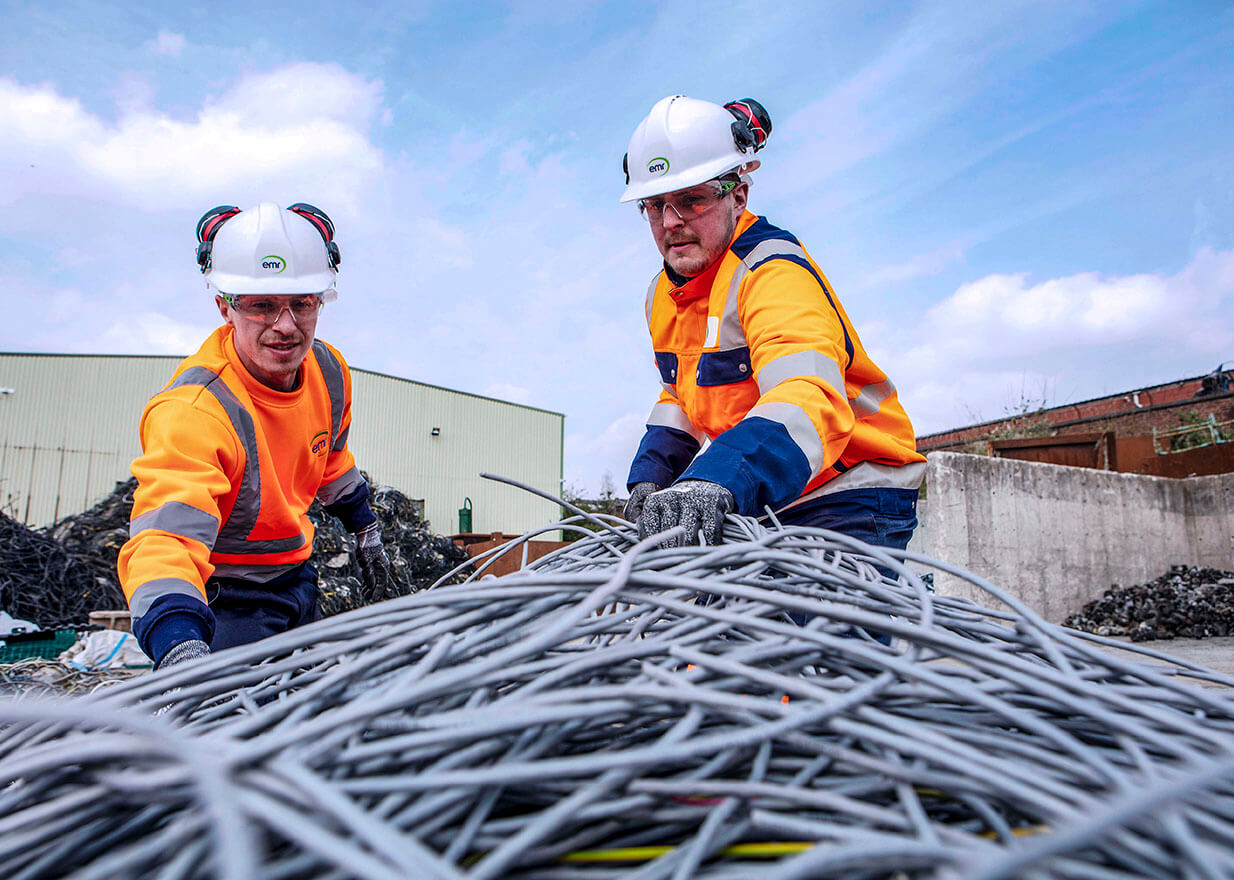CHOOSE
A DIFFERENT TERRITORY

From aluminium to zinc, recycling non-ferrous metal is a huge part of EMR's business across the UK, US and Europe. Managing this material’s journey, from end-of-life product to their arrival at a manufacturer or metal mill around the world, is the responsibility of EMR’s Director of Non-Ferrous, Terry Garry.
“Non-ferrous metal comes to our depots in many different forms. An electrician might come in with some copper cables, or a plumber with some copper tubes. A merchant could bring in some big industrial condensers, or a demolition company that’s pulling down a power station could bring in some huge copper conductors from that site.”
Meanwhile, as environmental concerns grow – and more people learn about the EMR sites on their doorstep – hundreds of members of the public are also delivering their old white goods, bikes and other metal items direct to EMR each week.
So, what happens once EMR receives non-ferrous metals from a member of the public, tradesperson or industrial customer?
“If I take an item like an end-of-life car, it will be shredded and all of the ferrous metal is separated by a magnet and removed for processing. Meanwhile, all of the non-ferrous metals and the plastic waste will go to our plants in Oldbury, Liverpool and Newmarket. Here, we use technology that separates the non-ferrous metal from the waste material. It then separates out some of the different non-ferrous metals from each other as well,” Terry Garry says.
Much of the technology EMR uses to separate the metals is state-of-the-art and often borrowed from other industries, including the mining, mineral processing and food sectors.
Terry Adds, “The methods we use are all based on Science. If you look down the periodic table, every element has its own unique properties and we can adjust our separation processes, individually or in combination, to exploit these unique differences and extract individual or groups of metals. This starts with light metals, like aluminium and magnesium, and moves down to heavy metals, such as copper, stainless Steel and zinc . We also sensor based sorters, scanning hundreds of thousands of points per second for the hard-to-separate material left behind.”
To ensure that the material EMR processes finds its way back into the global supply chain (and the next generation of products), each metal must be graded – providing manufacturers and metal mills with key information about what we are supplying them with.
“There are hundreds of grades,” Terry explains. “Each base metal is split down into different grades based on their purity and how clean they are. Each has its own international codes, which our partners can refer to wherever they happen to operate.”
Once processed and packaged most of the non-ferrous metals that EMR collects are put into full loads and readied for delivery to domestic works or exported in sea containers.
“When it arrives at its destination it is melted down and will, for example, go to a copper works producing tubes and wire for plumbing or electrical products. The aluminium will either go back into ingot form to build the engines of new cars, or will be turned into sheet-rolled aluminium for the same car’s chassis – it starts the cycle again.”
The whole metal industry is grappling with how to become more sustainable and Terry says non-ferrous is leading the way:
“A really high percentage of the world’s non-ferrous metal now comes from recycled material. For certain grades, such as stainless aluminium, the end-of-life recycling rate is 70 percent.”
And, while most non-ferrous currently must be exported to re-enter the supply chain, both the UK and US are starting to see increases in manufacturing at home as consumers demand more sustainable products.
For its part, Terry says EMR is working hard to make the recycling of non-ferrous metal even more sustainable and efficient.
“We’re constantly trying to improve our processes to extract every ounce of metal and make sure it doesn’t end up in landfill. That makes sense commercially, as well as environmentally.”
By bringing your metal products to your local EMR site, you’re helping drive a whole supply chain of sustainably recycled non-ferrous metal.